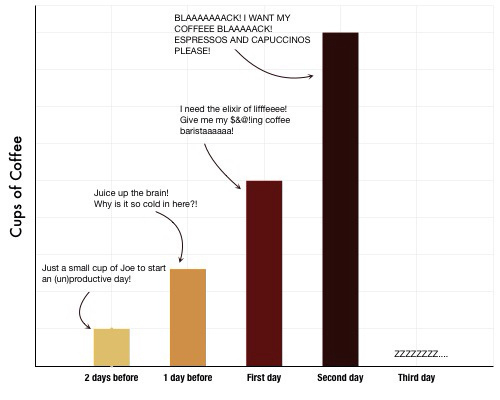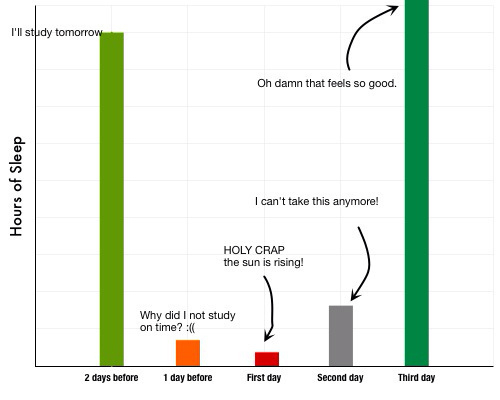👋 Hey there! I'm TJ. I write about data products, technology, software, and economics.
I'm a husband and father, living in Singapore, and from the Philippines. I explore data engineering and accounting at Titanium Birch.
On that Moment of Choice

No matter how rationally we try to act, that one moment of choice is still a purely emotional exercise.
I was reading this great book, and I found out something which may be useful for economists: that moment when you make a decision among close alternatives, is purely emotional. This is what the book has to say:
It’s purely emotional, the moment you pick. People with brain damage to their emotional centers who have been rendered into Spock-like beings of pure logic find it impossible to decide things as simple as which brand of cereal to buy. They stand transfixed in the aisle, contemplating every element of their potential decision—the calories, the shapes, the net weight—everything. They can’t pick because they have no emotional connection to anything
This is why companies are now starting to limit the variety in their product lines (the consummate example being Apple, of course), because it makes it easier to make an emotional connection and create post-hoc rationalizations about your choice. It may seem a little manipulative but this decision-making heuristic makes our lives easier; one just has to realize their cognitive biases.
It’s quite in line with the bounded rationality of behavioral economics; that people make choices rationally but only up to the extent of what they know and how they think. If this interests you, Predictibly Irrational and other books by Ariely are great reads.
aliases: - 2012/05/on-that-moment-of-choice.html - content/thoughts/2012-05-02-on-that-moment-of-choice/on-that-moment-of-choice.html - posts/2012-05-02-on-that-moment-of-choice
On Graphs: Finals Week
This finals week was definitely the most gruelling of my college life. Here are a few visualizations that sum up my sentiments:


aliases: - 2012/04/on-graphs-finals-week.html - content/thoughts/2012-04-20-on-graphs-finals-week/on-graphs-finals-week.html - posts/2012-04-20-on-graphs-finals-week - thoughts/on-graphs-finals-week
On Trial, Error and the God Complex
Tim Harford, who writes one of my favorite blogs, The Undercover Economist, speaks at TED about the merits of trial and error, the failures of the God complex, and the importance of making good mistakes. It seems so obvious when you listen to him, but it’s when you look around and see everyone trying to fix the world’s problems with their own preconceived master plans that you see how few people grasp the beautiful heuristic process of variation and selection.
- 2012/04/on-video-trial-error-and-god-complex.html - content/thoughts/2012-04-19-on-video-trial-error-and-god-complex/on-video-trial-error-and-god-complex.html - posts/2012-04-19-on-video-trial-error-and-god-complex - thoughts/on-video-trial-error-and-god-complex
On the Concorde

The Concorde’s elegant delta-wing design enabled it to fly supersonic speeds, yet unmatched by the commercial jets of today that still rely on the traditional fuselage and wing design.
The Concorde. It’s a beauty; it’s just about the most beautiful man-made thing in the world.
What a shame that it guzzled gas, made so much noise, and was eventually put out of service.
Still, its elegant silhouette, as well as the fact that it can travel at twice the speed of sound, inspires me to no end.
I remember from a documentary that New Yorkers who were protesting on the noise of the plane stopped in hushed awe when the Concorde was wheeled in.
It was just that stunning.
aliases: - /2012/04/on-the-concorde.html - /content/thoughts/2012-04-19-on-the-concorde/on-concorde.html - /posts/2012-04-19-on-the-concorde - /thoughts/on-the-concorde

On Stochasticity
Sometimes the noise is more important than the signal.
The ui represents stochasticity in this linear regression.
We all know that letter at the end of the sample regression function: u. It’s the stochastic disturbance term. Peculiarly, it is absent in the population regression function, the form and intensity of which is, according to my professor, only known to God. If you follow this vein of thought, you would eventually come to the conclusion that the u is simply the sum total of our ignorance. I disagree; I believe that the u represents something more than the lack of knowledge; it represents change and freedom. That u actually captures all effects, big or small, that weren’t and cannot be captured in the structured hash of the equation; the chaos in the world, as one might say.
Read More →